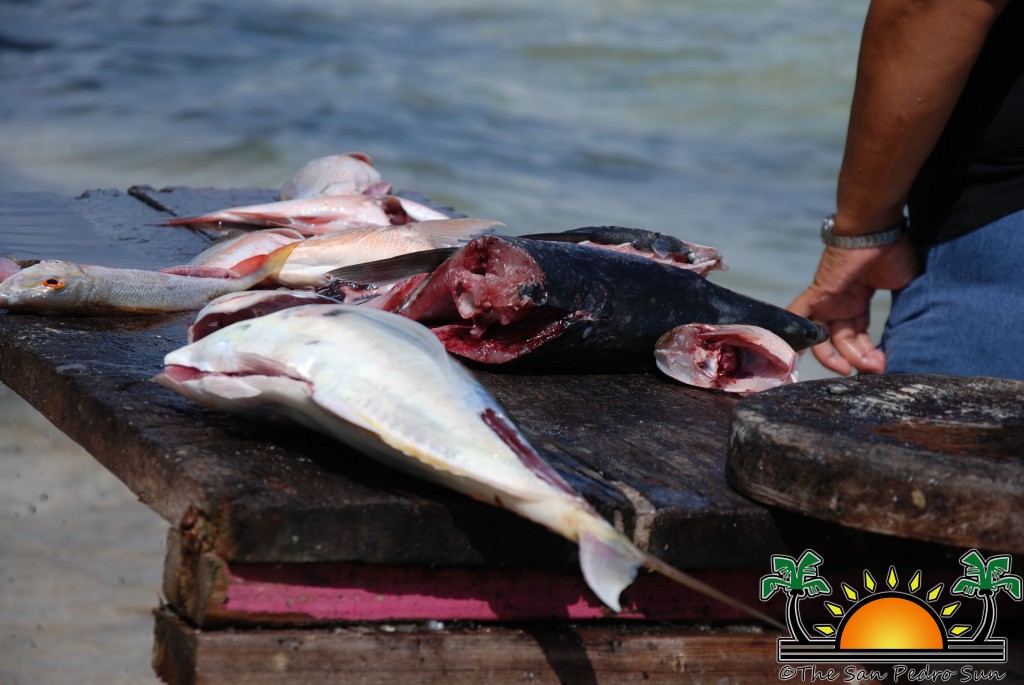Seafood is a staple in San Pedro Town, with many visitors to the island looking forward to enjoying tasty fish platters. However, the increase in demand on the island has led to a decline in the population of certain marine species. Now, restaurateurs are voicing concerns over the difficulties in obtaining certain fish species that were once bountiful, such as grouper and snapper – top choices served in restaurants.
Local restaurant owner have told The San Pedro Sun that fishermen are no longer bringing in enough grouper and snapper to sustain the demand. With customers demanding these specific species, restaurateurs are in a quandary over what to serve. The Sun attempted to get a clearer picture into the matter from Executive Director of MarAlliance, Dr. Rachel Graham. According to her the main problem is overfishing. Basically, “we’ve eaten the fish”.
“There are few long-term studies in finfish populations, especially in Belize. Nassau grouper populations have been monitored at their spawning aggregations since 2000 and are showing dramatic declines in numbers. I did a study on mutton snapper over the course of six years at Gladden Spit from 2000 to 2006, and showed a decline in size and captures as well as an increase in fisher effort to capture the fish. In Southern Belize, based on fishers noting a decline both in jewfish size and numbers, I conducted a two year study on landings of this species (known internationally as Goliath grouper) and showed captures of predominantly juvenile fish, very rare capture of adults. Many of these species don’t actually reach sexual maturity for at least five years or more and need to have the opportunity to spawn before being taken. Based on interviews, finfish declines coupled with increasing fishing effort are mirrored throughout the country. What you hear throughout fishing communities are declining fish stocks across for many species, especially with the larger long-loved later maturing groupers and snappers. It was also telling that not a single fisher interviewed wanted his or her child to become a fisher. They noted the work is very hard and they saw no future in the sector,” stated Graham on the phenomenon.
Dr. Graham went on to explain that the population of fish is just no longer there to sustain the demand by restaurants. “Fishers sometimes suggest that the fish moved. But where would they move to? Their habitats are the reefs and inshore mangrove and seagrasses. Fishing effort is fairly uniform and strong throughout our coasts and reefs. And no-one has landed on a previously undiscovered bonanza of fish. So they have been fished out and eaten.”
Reducing fishing efforts can help the fish populations develop, but it will take both local fishermen and restaurateurs to do their part. “Don’t spearfish the largest fish, these are the most fecund, with the ability to produce the greatest number of eggs of highest survival quality. And of course, stop using nets and longlines. These gears are unsustainable and can wipe out entire schools in one go. And then people wonder where the fish have gone. To the fisher, continue to focus on hook and line fishing, respect no-take fishing areas, including spawning aggregation sites to give the fish the opportunity to reproduce and grow, add value to your catch (prep, fillet, smoke etc) and demand higher prices for your fish. Look for additional means to earn income as the fisheries sector worldwide is in decline,” said Graham.
Currently the community is in the Lenten Season when the demand of fish marine species spikes. In order to avoid a lack of fish inventory, Graham has suggested restaurants find substitute products such as faster reproducing snappers like yellowtail, schoolmaster, lionfish and farmed fish like tilapia.

Share
Read more

